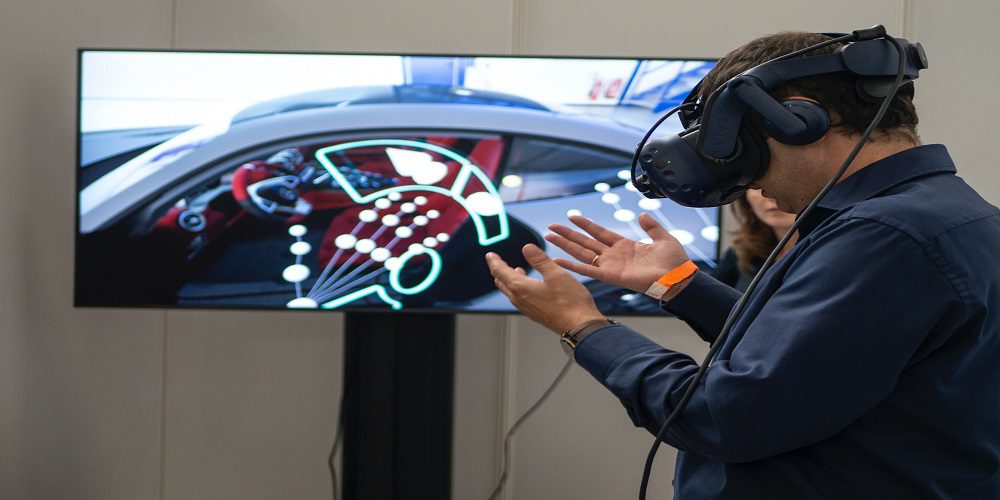Introduction
In recent years, the gaming industry has undergone a remarkable transformation, thanks to the introduction of AI-powered personalization. This groundbreaking technology has redefined the gaming experience by tailoring content to individual players through sophisticated algorithms and machine learning. Let’s delve into the myriad benefits offered by AI-powered personalization in games.
Benefits of AI-Powered Personalization in Gaming
1. Enhanced Player Engagement: AI-powered personalization excels at boosting player engagement by analyzing the intricate details of player interactions. By discerning patterns in gameplay, AI adapts challenges and content to align seamlessly with each player’s skill level and interests. This results in players feeling consistently challenged but not overwhelmed, fostering longer and more satisfying gaming sessions.
2. Improved Retention Rates: Personalized experiences contribute significantly to heightened player retention rates. When players receive content tailored precisely to their preferences, they develop a sense of ownership over the game. This personal touch fosters a connection, encouraging players to continue their gaming journey for extended periods.
3. Customized Difficulty Levels: AI-powered personalization allows games to offer bespoke difficulty levels based on individual player skills and progress. Instead of relying on fixed difficulty settings, AI dynamically adjusts elements such as enemy strength, puzzle complexity, and time limits to match each player’s abilities, ensuring a consistently challenging yet enjoyable experience.
4. Personalized in-game rewards: Personalization extends to in-game rewards, with AI analyzing player behavior to determine the most appealing incentives for each individual. Whether it’s unlocking exclusive content, receiving special items, or earning virtual currency, personalized rewards incentivize players to continue their gaming journey and achieve their in-game goals.
5. More immersive gameplay: AI-powered personalization elevates gameplay by tailoring the game world and characters to match individual preferences. Visuals, sound effects, and dialogue can be adjusted dynamically, creating a unique and immersive experience for each player. This personalized touch enhances the overall gaming experience, making players feel truly immersed in the game world.
6. Better Data Collection: Personalization not only benefits players but also provides developers with invaluable insights into player interactions. Continuous data collection and analysis enable developers to understand which aspects of the game are most engaging for different player demographics, paving the way for continuous improvement.
Challenges and Limitations of Personalization in Gaming
While AI-powered personalization has significantly enhanced the gaming landscape, it comes with its own set of challenges and limitations that need careful consideration.
1. Potential for Bias:
The risk of bias is a significant challenge. If AI algorithms are trained on biased or incomplete data, the personalized experiences generated may not accurately cater to diverse player preferences, potentially leading to feelings of exclusion or misrepresentation.
2. Over-Reliance on Personalization:
There is a concern that as AI becomes more sophisticated in understanding player behavior, developers might overly rely on personalized content, potentially neglecting the creation of diverse and engaging gameplay for all players. Striking a balance is crucial to maintaining variety and replayability.
3. Technical Challenges:
Scalability poses a technical challenge, with an increased number of players engaging with personalized content potentially straining servers and resulting in slower loading times or crashes. Seamless gameplay experiences need to be prioritized.
Future Possibilities for Personalized Gaming with AI
The rapid evolution of AI presents exciting possibilities for the future of personalized gaming.
1. In-Game Decision-Making:
Future developments may involve AI making real-time decisions within games based on player behavior and data analysis. This could include dynamic adjustments to difficulty levels or providing customized tips and hints to aid struggling players.
2. Dynamic Storylines:
AI’s potential for creating dynamic storylines based on player decisions and gameplay style is a promising avenue. Players could experience unique narratives tailored to their choices, offering a personalized storytelling experience.
3. Virtual Reality (VR) Gaming:
AI’s integration with virtual reality (VR) gaming opens up new frontiers, allowing players to interact with game elements and characters in unprecedented ways, creating a more immersive and personalized gaming experience.
Ethical Considerations for AI-Powered Personalization in Games
As AI-powered personalization gains prominence in the gaming industry, ethical considerations must be prioritized.
1. Privacy Concerns: The constant collection of player data for personalization raises privacy concerns. Developers must be transparent about data collection and usage, ensuring players have control over their personal information.
2. Fairness and bias: Developers must actively address biases within AI systems to ensure fair and equitable personalized experiences for all players, avoiding stereotypical recommendations that may disadvantage certain groups.
Conclusion
The gaming industry has evolved exponentially, thanks to the integration of artificial intelligence. AI-powered personalization has not only transformed the gaming experience but has also opened up exciting possibilities for the future. As developers continue to navigate the challenges and ethical considerations, personalized gaming experiences tailored to individual preferences are set to become even more sophisticated and integral to the gaming landscape.



































